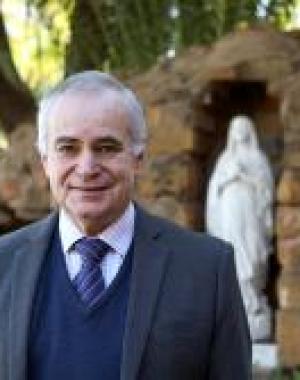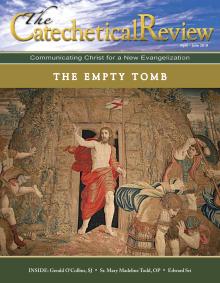Recently, a highly gifted colleague of mine told me of a visit she had made to officials of a nearby diocesan school system. This lady is an outstanding educational practitioner with very high quality skills in special and gifted educational strategies. The visit had gone very well, and the school authorities were very interested in what she was offering on behalf of the university. Yet there was one part of the visit that perplexed her. She had been asked this question: What is the difference between what you are offering as a Catholic university and what is available through the nearby public university? The lady is a very committed and faithful Catholic, but she felt a little ill at ease and unable to articulate the difference. So she asked me about it. This was not an attempt on her part to have a glib answer to offer. She was genuinely interested in what changes might be made to the actual work that she does. Actually, I was delighted to be asked. It is something that has occupied me for over thirty years and lay at the core of my own doctoral thesis. In this article, I intend to offer an overarching vision of the Catholic educational project.
Seeing with Both Eyes
The great Australian theologian, Frank Sheed, once wrote a book with the puzzling title Theology and Sanity. What does theology have to do with sanity? Everything! The classic definition of truth from St. Thomas Aquinas is: “Veritas est adaequatio rei et intellectus.”[i] To put that in layman’s terms, St. Thomas claims that we have the truth when what we have in our minds conforms to what really exists. In Sheed’s view, to see things as they really are is to be “sane” and by contrast, when a person genuinely believes in a world view that is not true, that person is “insane.” For this reason, Catholic teachers must teach differently from their public school counterparts, presenting reality as it is by incorporating both natural and supernatural perspectives. Pope John Paul II famously insisted that the human person ascends to God on two wings “faith and reason.” There are some educational systems that view reality from the perspective of faith alone: fideism; others insist on excluding whatever cannot be measured and observed: rationalism. Neither of these perspectives can properly express a Catholic vision of education. Chesterton put it rather more colorfully by reminding us that human sight is stereoscopic: to view anything with only one eye is to see it wrongly.
The rest of this online article is available for current Guild members.
This article is from The Catechetical Review (Online Edition ISSN 2379-6324) and may be copied for catechetical purposes only. It may not be reprinted in another published work without the permission of The Catechetical Review by contacting [email protected]


















